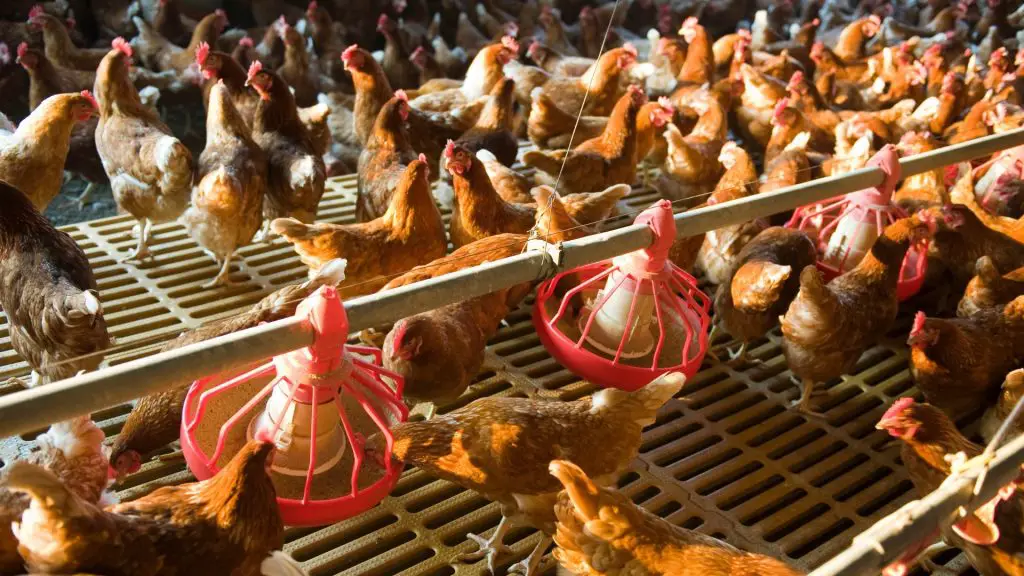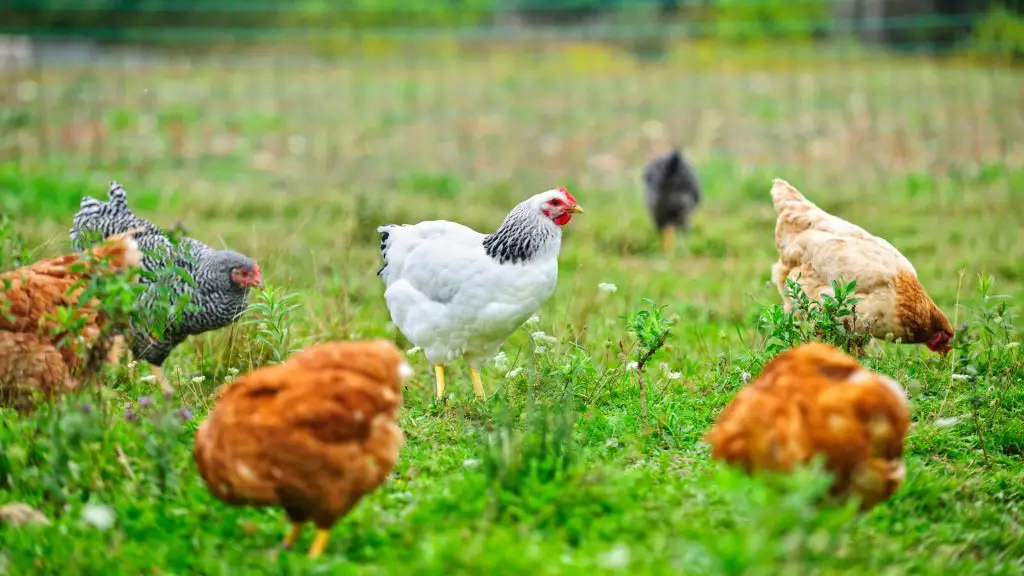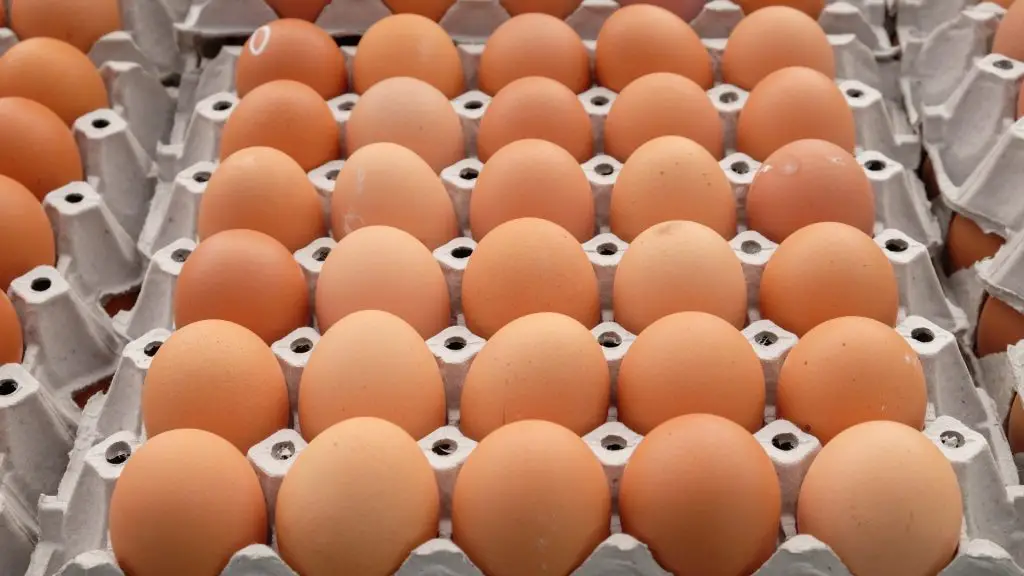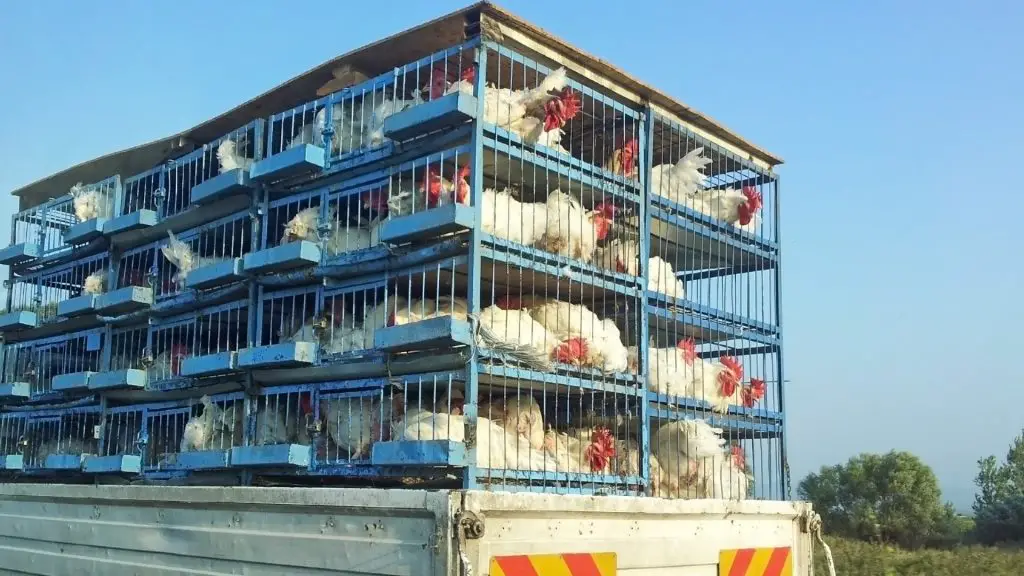Chicken farming is a significant venture to get into. It requires a lot of information to make sure you can be the best farmer you can be.
What to know about chicken farming? Chicken farming requires ample space and time to devote to your birds. You must follow state regulations for livestock care. Give your chickens proper attention, the necessities, security, and ensure their area is sanitary. Healthy chickens result in better eggs and meat production.
Getting started with your chicken farming can be overwhelming, but if you follow this simple guide, it’ll make the process much easier, and you’ll be off and running in no time!
Types of Chicken Farming

Now that you’ve decided to start chicken farming, you need to decide what type of farming you’d like to do.
- Are you going to produce eggs commercially?
- Do you want to raise animals for meat production?
- Are you trying to produce birds for specialty markets, like organic or free-range?
- Are you raising chickens as a breeder?
These are all questions you need to ask yourself before beginning your farming journey.
Each of these specialties requires a different type of zoning, and some require permits and inspections. For example, if you intend to start breeding poultry, you’ll need to register and get approved through your state authorities. Ensure your property is approved for chicken farming before buying birds; nothing is worse than investing in a flock you can’t keep around.
Setting out with a specific goal and verifying the legality of your venture is crucial to giving your birds the best life you can and making sure you’re producing the best product you can. It’ll also impact every other aspect of building your farm.
Setting Up a Chicken Space

The next step is to start preparing the space for whatever type of production you’d like to do.
You’ll want to give your birds the best care possible, so you’ll need to make sure they’re comfortable and safe in their space. The more they can thrive in their environment, the better the result will be for your farming venture.
Space
Before you ever get any chickens, you should make sure that there’s sufficient space for them. It is recommended three square feet (0.28 sq m) for every bird. Thus, if you want to have a production flock of 100 birds, you’ll need at least 300 square feet (27.87 sq m).
If you’re going to raise birds for other specialized certifications, such as free-range, you’ll need even more space. These kinds of requirements vary from state to state, so you should check on your state’s agriculture website to make sure you qualify.
Security
You also need to make sure the area is properly secured. The last thing you want is to wake up to a fox or coyote who managed to get into the building. Outside of predators, there should also be protections for hazardous weather conditions.
Make sure all doors lock securely, and all windows are out of your birds’ reach. Verify that there are no other access points that predators could get into or chickens could get out through. This is especially important if you’re modifying an older building for your purposes.
If necessary, move large containers away from potential access points, such as open windows. Many common predators for chickens can easily climb these objects to get to your birds.
The best thing to do is set up a specific chicken coop that meets state laws and has secure entrances and exits. These can be found through local construction companies, and local feed stores may also have recommendations for builders.
State and county fairs often feature advertisers who specialize in livestock construction. These structures are designed for flock care and should consider all possible issues.
Basic Necessities
Chickens, like any other living creature, need food and water to survive and plenty of it. The younger your flock, the more resources they’ll need to grow up and be the best they can be for production.
Waterers should also be easily accessible and spread throughout. Animals can survive without food longer than water, so chicken care is the most crucial element. Depending on your climate, chickens can only go without water for as short as 12 hours.
You can hook these waterers up to automatic fillers so that your birds have a never-ending supply of water, and you don’t have to worry about filling them up every day.
Feeders should also be distributed evenly throughout your coop(s). All birds should have access to them 24/7. Top them off frequently with protein and nutrient-rich feed, depending on the purpose you’re raising your birds for. You should also mix in supplements.
Milk is an excellent additive to help chicks, laying hens, and fatten up birds in general. It’s high in calcium and fat, which are necessary additions for healthy birds. They aren’t commonly found in most mass-produced feed either.
If you raise chickens from chicks to adults, you’ll need to keep a brooder pen ready and organized at all times of the year. These will require heat lamps and chick feeders.
Additionally, brush up on your understanding of chemistry and ratios. Professional feed and water treatments require forethought and careful planning. You have to note the weather, the type of chickens you’re raising, and your end goal.
One mistake could poison your entire flock or make them vulnerable to dangerous diseases.
Hygiene
When raising animals for the food industry, good hygiene is essential. You need to keep your animals’ living space clean and sanitary. Make sure to clean your chicken coops as often as possible to keep their living space the cleanest it can be.
Bacteria thrive around domestic animals, and many diseases can transfer to humans when they consume animal products. These diseases, such as E. coli or salmonella, can be deadly. Prevention starts at the source–with the animal producers.
You should provide some form of substrate for your birds. This will make cleaning coops easier. And don’t use sand; if it gets into their food, it can lead to impaction and kill your birds.
During the winter months, you should provide supplementary heaters to keep your birds comfortable. You should also provide fans for your birds during the summer months. These will help with proper ventilation and keep air moving.
Covering primary care on all levels will make sure your birds stay happy and healthy. However, sometimes some issues require specialized care. That’s when you should seek the counsel of a veterinarian.
Vet Care
You’ll also need to select a local veterinarian who sees avians. These vets can help with larger-scale issues, such as flock illnesses. Having a dependable vet can catch problems before they become too serious.
Occasionally, vets that see birds won’t see chickens since they might specialize in exotic species, like parrots. So it’s best to look up poultry vets in your area and contact them to see if they can work with your flock.
You should also look at their websites and see what their specialty is. A vet who specializes in egg-production birds is very different from a meat production vet. However, these can be hard to find, especially in more remote and rural areas.
An aspect of chicken farming is that many birds aren’t going to be saved by a vet. This goes especially for individual problems, such as genetic defects and injuries or particularly contagious diseases.
In these cases, you should euthanize the animal(s). While it can be unpleasant to cull larger populations, quick action can save other unaffected birds on your farm. It’s better to remove birds and repopulate than lose an entire flock.
Selling Your Product

The next step is to figure out where you want to sell your products.
In today’s market, you should carefully research what companies or businesses you want to work with. Read reviews from other suppliers and analyze them carefully. Some red flags are better hidden than others.
Facebook groups can be an excellent resource for finding out the honest reputation of a company. These groups can also help you build connections down the road and help with troubleshooting.
If you’re selling chickens as a breeder, you can operate as a small-scale breeder (selling to individuals) or large-scale (selling to businesses). Your hatchery can cater to many different types of clientele, even other chicken farmers!
If you’re producing a niche breed, you may want a smaller flock to keep demand high. If you’re selling a common one, you should keep a larger flock to meet the demand.
You could also operate your own stand, farm store, or company for smaller batches of products and a closer-knit supply network. These will require a lot of work from the farmer and other employees, but the payoff could be significant. This is a good option if you work in a niche market and want to consolidate your business practices.
And since chickens are famously photogenic (consider Foghorn Leghorn and Heihei, the lovable rooster of Disney’s Moana), you should have no trouble attracting followers on social media, such as Instagram or TikTok.
If you’re selling for meat, egg production, or as a breeder, you can work with a smaller company or sell to a larger corporation. These could be Perdue, Cal-Maine, or the United States government. There are pros and cons to working with larger and smaller companies.
Related: How to Sell Chicken Eggs? | Helpful Tips
Working With a Larger Corporation
Working with a giant corporation can be much easier for a farmer. These companies have the resources and production facilities to handle more significant birds, and there’s consistent demand. They can pay higher prices than other smaller companies as well.
Corporations can also provide easy transportation and handle the processing of your raw materials. This ensures you can focus on the care of your flock.
However, this kind of work means you have to meet their standards of care and have more oversight of your work. You may also have to advertise that your birds are going to the company you’re working with.
You’ll also have to sign a contract to work with these companies, some of which require exclusivity. In other words, you’ll have to only sell your products to the company you signed a contract with.
This can lock a farmer into a longer commitment than is productive, especially if the industry turns. Any disagreements can cause friction, and with a contract, you cannot leave. These also put the power within the company.
Working With a Smaller Company
Smaller companies can be much more personal than large corporations. They’re often run by smaller groups of farmers or families which can foster closer networks of suppliers. They usually work in more niche meat production and take particular types of meat. This is an ideal option if you’re raising free-range or organic birds.
Smaller companies aren’t exactly a walk in the park, though. They often have fewer resources and can only work with a certain number of suppliers. They also are more prone to turnover and can close faster, leaving farmers in the lurch. And while big companies mean dealing with impersonal bureaucracies, small collectives can become embroiled in petty personal infighting.
Running Your Own Business

If this sounds like something you want to work on, consider starting your own chicken company! Then you can have complete control and can begin building a reputation for yourself. This can also improve your profits later on down the line.
However, this is a risky business; one mistake can bring everything crashing down and cause significant issues. You have to put your whole business and money on the line to make it in the industry.
Sometimes, it won’t lead to success. This is the biggest con of this concept for advancement. If you’re going to go down this road, make sure you’re ready for that. It’s also a good idea to look into a business degree or take courses on business management, so you’ll be better equipped to take on the challenge.
There are many well-accredited agricultural schools, and many of them have business-related classes. They’ll teach you everything you need to know about farming, and there are often animal-specific classes, too. They also often offer certifications.
For poultry, one of the best schools is Purdue University. They have an extensive agricultural program and specialize in poultry studies. However, one drawback is that they’re affiliated with Purdue Farms, one of the largest poultry companies in the United States.
Supplementary Concepts
Sometimes, there are other goals you can reach with farming that are more focused on awards and passion, not the bottom line. These can be community-focused or related to the field as a whole.
Fair Awards and Competitions

County, state, and national fairs can be an excellent opportunity to show off your animals if you’ve reached a certain level of excellence with them. This is a fantastic opportunity if you’re trying to make it as a breeder or run a hatchery.
From a business perspective, winning awards at these fairs can open doors for people who want pedigreed animals. They’re willing to pay top dollar for animals with a specific lineage or for the opportunity to insert their genetics into their flocks.
Fairs are also a great way to get a fledgling business out there. With the people who attend the fair, word of mouth may spread, and some fairs allow businesses to set up booths and advertise their services.
Summary
Eggs and chicken meat are two of the most popular products consumed in America. To have healthy chickens, you need to provide them with ample space for movement and time outside their coop; make sure they’re fed a balanced diet that meets all their nutritional needs.
Give your birds plenty of attention so they know how much you love them (chickens can be emotional too). Ensure the area is sanitary by cleaning regularly and ensuring there’s no way for pests or predators to get inside.
Furthermore, follow state livestock care regulations, including giving your chickens proper rest periods, socialization opportunities, access to natural light, fresh air, and water—these necessities will help maintain a happy flock!
